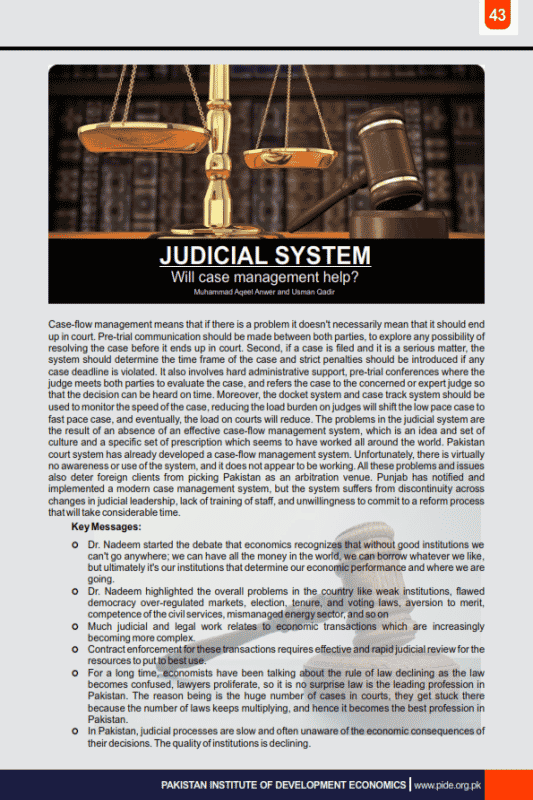
Pakistan Institute of Development Economics
- Home
Our Portals
MenuMenuMenuMenuMenuMenuMenu - ResearchMenuMenuMenuMenuMenuMenuMenu
- Discourse
- The PDR
- Our Researchers
- Academics
- Degree Verification
- Thesis Portal
- Our Portals
JUDICIAL SYSTEM Will case management help?
Case-flow management means that if there is a problem it doesn’t necessarily mean that it should end up in court. Pre-trial communication should be made between both parties, to explore any possibility of resolving the case before it ends up in court. Second, if a case is filed and it is a serious matter, the system should determine the time frame of the case and strict penalties should be introduced if any case deadline is violated. It also involves hard administrative support, pre-trial conferences where the judge meets both parties to evaluate the case, and refers the case to the concerned or expert judge so that the decision can be heard on time. Moreover, the docket system and case track system should be used to monitor the speed of the case, reducing the load burden on judges will shift the low pace case to fast pace case, and eventually, the load on courts will reduce. The problems in the judicial system are the result of an absence of an effective case-flow management system, which is an idea and set of culture and a specific set of prescription which seems to have worked all around the world. Pakistan court system has already developed a case-flow management system. Unfortunately, there is virtually no awareness or use of the system, and it does not appear to be working. All these problems and issues also deter foreign clients from picking Pakistan as an arbitration venue. Punjab has notified and implemented a modern case management system, but the system suffers from discontinuity across changes in judicial leadership, lack of training of staff, and unwillingness to commit to a reform process that will take considerable time.



